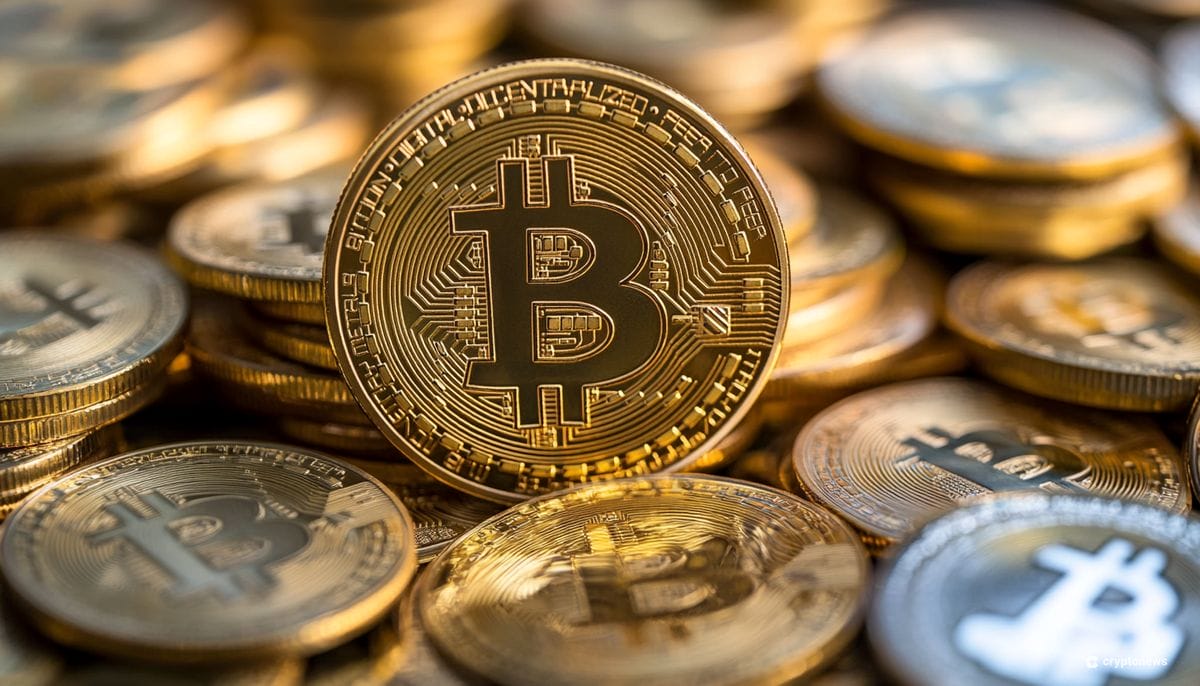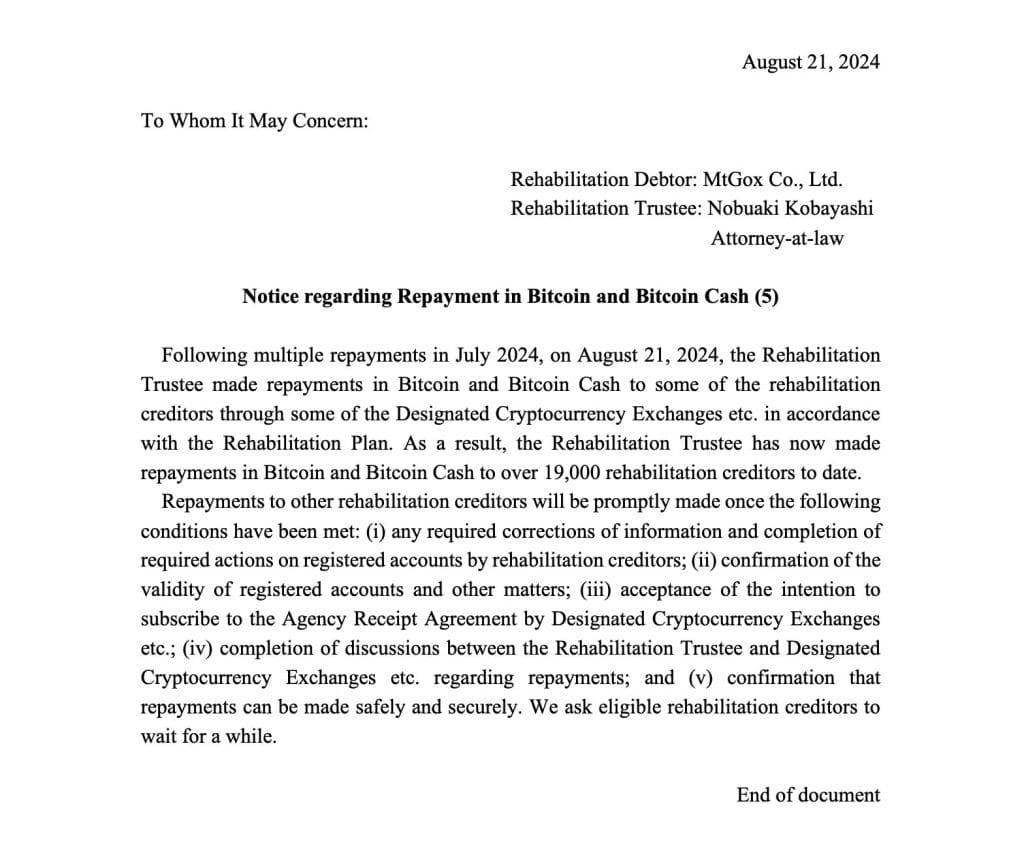MtGox Repayments Continue: 19,000 Creditors Receive Bitcoin and BCH
MtGox has repaid over 19,000 creditors with Bitcoin (BTC) and Bitcoin Cash (BCH) in its rehabilitation process.

MtGox, once the world’s largest Bitcoin exchange, continues its long-awaited rehabilitation process, repaying more than 19,000 creditors with Bitcoin (BTC) and Bitcoin Cash (BCH).
These repayments are another step forward in the recovery effort following the exchange’s infamous collapse in 2014 when hundreds of thousands of bitcoins were stolen.
MtGox Rehabilitation Process: Over 19,000 Creditors Repaid
On August 21, Nobuaki Kobayashi, the MtGox Rehabilitation Trustee, announced the latest round of repayments to creditors in Bitcoin and Bitcoin Cash as part of the ongoing Rehabilitation Plan.
The distribution of these funds was facilitated through various Designated cryptocurrency Exchanges, which have been working closely with the Trustee to ensure the secure and accurate transfer of assets.
 Source: MtGox
Source: MtGox
The process, however, is not yet complete. Repayments to the remaining creditors are pending and will proceed once several conditions are met.
These include corrections of information and actions required by the creditors, validation of registered accounts, acceptance of the Agency Receipt Agreement by the involved exchanges, and the successful completion of discussions between the Trustee and these exchanges.
The priority is ensuring that all repayments are conducted safely and securely, according to the guidelines outlined in the Rehabilitation Plan.
Distribution Coming to an End?
The downfall of MtGox in February 2014 was one of the most impactful events in cryptocurrency history.
Founded by Jed McCaleb in 2010 and later acquired by Mark Karpelès, the exchange quickly became the largest platform for Bitcoin trading, handling around 70% of all transactions worldwide by 2013.
Behind the scenes, MtGox was plagued by security vulnerabilities, poor management, and increasing cyberattacks.
In early 2014, the exchange suddenly halted all trading, closed its website, and filed for bankruptcy, revealing that hackers had stolen 850,000 bitcoins, worth around $450 million at the time.
In 2018, a Japanese court approved a civil rehabilitation plan, allowing MtGox creditors to be repaid in Bitcoin rather than the equivalent cash value at the time of the exchange’s bankruptcy.
Nobuaki Kobayashi, the appointed rehabilitation trustee, has since been responsible for managing the repayment process.
Over the years, Kobayashi has liquidated portions of the remaining assets, but the process has been slow and fraught with legal complexities.
As rehabilitation progresses, creditors who have not received their repayments must promptly complete all required information and actions.
The Trustee’s announcement today reiterates that completing these steps is crucial for continuing repayments.
While the journey has been long and fraught with legal and logistical challenges, the progress made thus far provides a hopeful outlook for those still awaiting their due.
As reported by Arkham, Mt. Gox recently transferred over $855 million worth of Bitcoin to unidentified wallet addresses.
The transfers included $74 million to a known Mt. Gox cold storage wallet and $784.2 million to an unknown wallet. These funds have yet to be moved since the transfer.
Bitgo, the final platform assisting in the return of assets to Mt. Gox creditors, has begun final preparations for payouts, as indicated by recent test transactions from a wallet holding 33,105 Bitcoin.
So far, $5.77 billion in Bitcoin has been distributed to exchanges as part of the rehabilitation plan.
Disclaimer: The content of this article solely reflects the author's opinion and does not represent the platform in any capacity. This article is not intended to serve as a reference for making investment decisions.
You may also like
New US SEC Chair to Review 72 ETF Applications for SOL, XRP, ADA, DOGE and Others
New spot margin trading pair — HYPER/USDT!
BTC breaks through $89,000
Bitcoin infrastructure company Arch Labs completes $13 million Series A funding
